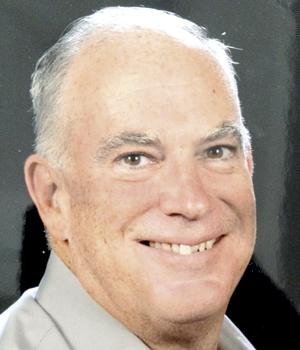ACA repeal would affect Sussex County hospitals
Lynda Messick, a retired banker, remembers the first time she sat down to read the first version of the 1,400-page Affordable Care Act.
"When I got done, I was terrified," said Messick, chairperson of the board at Nanticoke Health Services in Seaford.
"Terrified and confused. I didn't know what was going to happen to my employees," said Messick, who was still working as a banker when the ACA was passed.
But Messick did know what to do next. She signed up to attend a town hall meeting sponsored by U.S. Sen. Tom Carper.
Carper, whom she described as very knowledgeable about healthcare issues, helped with the initial ACA orientation.
Carper also helped in what was then her new position on the board at Nanticoke.
He has worked as a "tireless advocate" for Nanticoke, making sure the hospital received its proper share of Medicare and Medicaid funding.
"That's a big chunk of our business," Messick said. "That's very important to us."
That funding not only allowed Nanticoke to expand its services, it also helped the hospital deliver higher-quality healthcare.
"So much so that we are ... the only four-star hospital on the entire Delmarva Peninsula," Messick said.
The rating, which Nanticoke has received for the second year in a row, is granted by the Centers for Medicare & Medicaid Service.
Messick and Carper were among the speakers at a recent rally in support of the ACA in Seaford. This column, my third on this topic, looks very briefly at how ACA repeal would affect two of our Sussex County hospitals.
The point is, we - by which I mean the entire country - need to move carefully before disrupting the entire healthcare system.
The repeal process, such as it is, has begun. President Trump and the Republican Congress have already taken the first steps.
For his part, Trump has promised "insurance for everybody" that will be "much less expensive and much better."
I know of no credible source that thinks this is possible.
As for congressional Republicans, they recently discussed their replacement plans at a Philadelphia retreat.
Here's what Rep. Patrick J. Tiberi (R-Ohio), chairman of a health subcommittee, had to say, as quoted in the Washington Post.
"I don't think you will see a plan," Tiberi said. "I think you will see components of a plan that are part of different pieces of legislation that will make up what will ultimately be the plan."
In other words, there is no plan. I'm not even sure there's a plan to get to a plan.
What they seem to be searching for is a foolproof way to avoid responsibility for whatever disaster unfolds.
But they're moving forward. Or backward. Or wherever.
Which puts our local hospitals in a bind. How do you plan with so much uncertainty?
Here's the situation as described by Jeffrey M. Fried, FACHE, president/CEO, Beebe Healthcare, in an email last week.
"There are many moving parts to the Affordable Care Act so unless the entire bill is repealed and not replaced, it's hard to know what the exact impact of the repeal will be," Fried said.
"The American Hospital Association has made some assumptions about one possible alternative, based upon past bills that have been introduced by Congressman Tom Price from Georgia, who is the presumptive nominee for Secretary, HHS."
How would that alternative affect Beebe?
"That possibility would cause Beebe Healthcare to see a loss of about $80 million in reimbursement over the next nine years," Fried said.
You can see why healthcare providers like Beebe and Nanticoke are so concerned.
But the $80 million drop in reimbursements, in itself, isn't Fried's main worry. It's about the quality of heathcare.
"Our primary concern with the repeal and replace approach is we don't want to see people who for the first time were able to get some kind of insurance coverage for their medical concerns and then lose that security blanket," he said.
"We know that people without insurance will tend to postpone or delay care when it is important not to, and may ultimately end up with a much more serious medical problem because they didn't seek timely medical attention."
That's it in a nutshell: delayed care and more serious illnesses. We'd also see more trips to the emergency room by people who don't belong there.
Said Fried, "That would be a real step backward for how we seek to provide medical care in this country, in an effort to try and keep people healthy."
Keeping people healthy is common sense. The ACA is helping us do that. Can it be tweaked and improved? Sure. But repealing it without a plan – a real plan – should not be an option.
People's lives are at stake.
Don Flood is a retired newspaper editor living in Lewes. He can be reached at floodpolitics@gmail.com.























































